Mastering Your Google Ads Bid Strategy
- Chase McGowan

- Oct 5, 2025
- 14 min read
Let’s cut to the chase: your Google Ads bid strategy is the single biggest silent killer of your profits. It's the most common leak I find in new accounts, often put in place by an over-priced agency. Pick the wrong one, and you’re just hemorrhaging cash on clicks that go nowhere. This isn’t some minor setting; it’s the financial engine of your entire campaign.
Why Your Bid Strategy Is Quietly Draining Your Budget
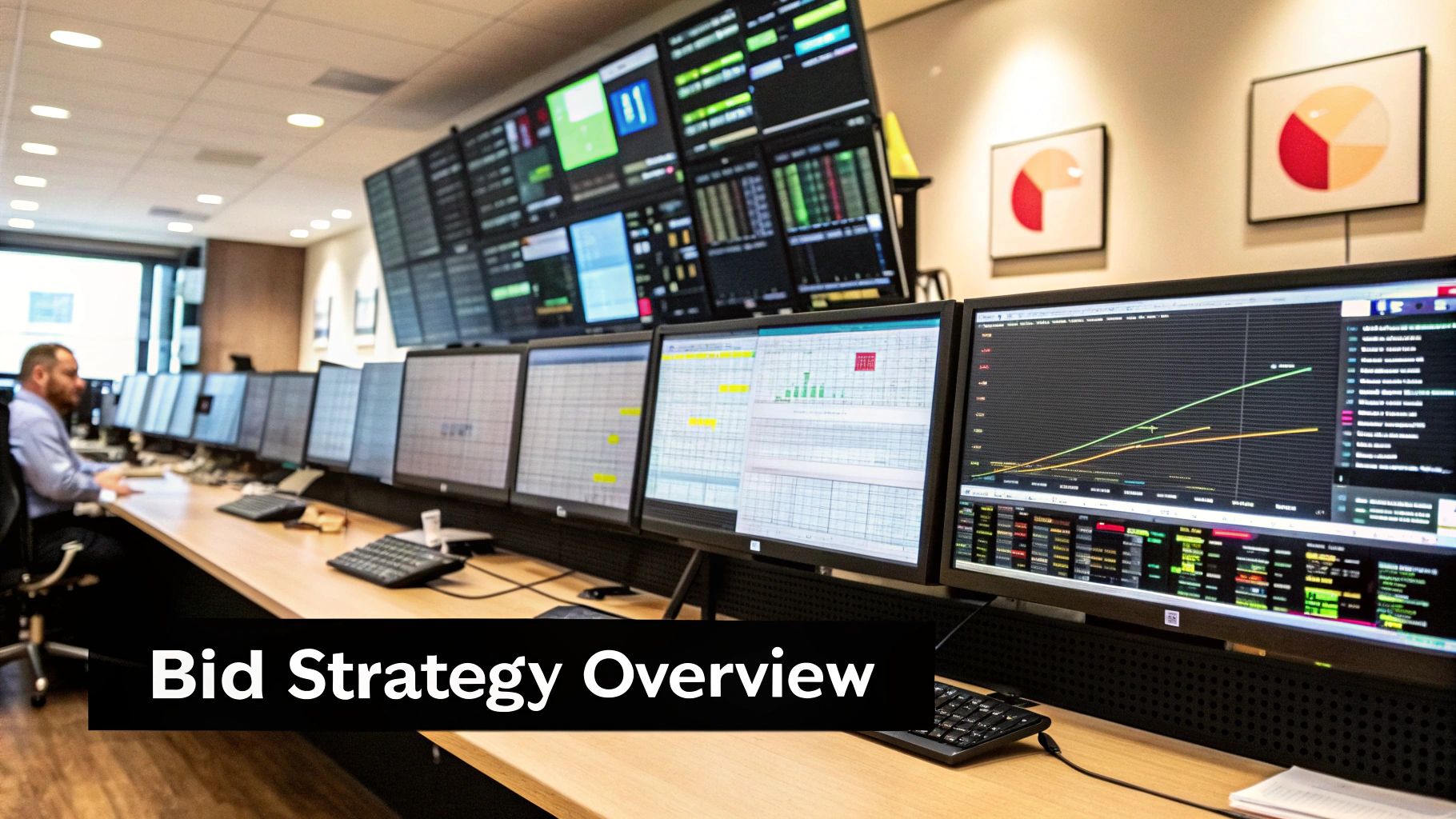
So many businesses hand their campaigns over to bloated agencies that slap on a generic, one-size-fits-all strategy. They’ll often default to something that looks good on a monthly report—like “Maximize Clicks”—without ever asking if those clicks are actually turning into sales for your unique business.
This is the standard agency playbook: prioritize what’s easy for them to manage across dozens of clients, not what’s profitable for you. They lack the individual specialization to go deeper. The result? You see a lot of activity, but your bank account tells a different story. It’s a classic move that pads their reports while quietly siphoning your ad spend.
Moving Past the Agency Playbook
As an individual consultant, I treat your account as my own. I don’t see your bid strategy as a setting you "set and forget." It's the core of a custom financial plan for your ads. A bloated agency might not have the time—or frankly, the specialized incentive—to dig this deep, but this is exactly where a dedicated expert creates massive value.
A flawed bid strategy is like a slow, constant leak in a ship. It won't sink you overnight, but after a few months, you’ll find yourself bailing water and wondering where it all came from. My job is to be your specialist, finding that leak and patching it for good.
This guide isn't about reciting textbook definitions. We're going to get into the weeds of how to spot a failing strategy and build a new foundation around what actually matters: your profitability.
The Foundation of a Profitable Campaign
Before you can even think about picking the right bid strategy, you need to know your numbers inside and out. What are your goals? What’s your budget? It all starts here.
For example, using a tool like a Google Ads budget calculator can help you maximize your ROI by grounding your strategy in reality from day one.
Getting this foundation right gives your bid strategy a clear target to aim for. It’s the difference between surgical spending from a specialist and the "spray and pray" approach of an overworked agency generalist.
Driving Manual vs. Trusting Autopilot in Google Ads
When it comes to your Google Ads bid strategy, the first big decision is always manual or automated. Think of it like driving a high-performance car.
Manual bidding is you, in the driver's seat, with a stick shift. You’re in complete control of every gear change. This gives you incredible precision for navigating the tight corners of a new campaign or a small budget where every single dollar has to pull its weight.
Automated bidding, on the other hand, is like switching on a sophisticated autopilot. It lets Google’s AI analyze thousands of signals in real time, making it fantastic for cruising efficiently once you're at scale. The problem? A lot of bloated agencies just flip on the autopilot and hope for the best, letting it drive your budget right off a cliff by targeting the wrong traffic because they aren't paying close attention.
The Consultant's Approach to Control
As a hands-on consultant, my job is to be the professional driver who knows exactly when to grip the wheel and when to let the machine take over. This is a level of individual specialization you won't find at a large agency.
For any new campaign or an account with a tight budget, manual control is non-negotiable. It’s the only way to meticulously manage costs and gather the clean, foundational data we need to make smart decisions later on. No guesswork allowed.
Once a campaign builds momentum and has a healthy amount of conversion data, that's when automation becomes a powerful tool for scaling. Here’s where my approach as a specialist really differs from a typical agency. I don't just "turn on" automated bidding. I program the destination, I monitor the entire journey, and I’m always ready to step in and make a course correction. It’s about using automation as a precision tool, not a lazy crutch.
The core difference is simple: an agency often uses automation for their own convenience. As your dedicated consultant, I use it for your profitability. I have the individual specialization to pull the right levers, ensuring the AI works for your specific business goals, not just generic metrics.
Understanding when to shift from manual to autopilot in Google Ads is part of a bigger picture. It's about knowing how to automate business processes for maximum business leverage without losing sight of the goal.
This infographic really nails the trade-off between how much time you put in versus how much control you have.
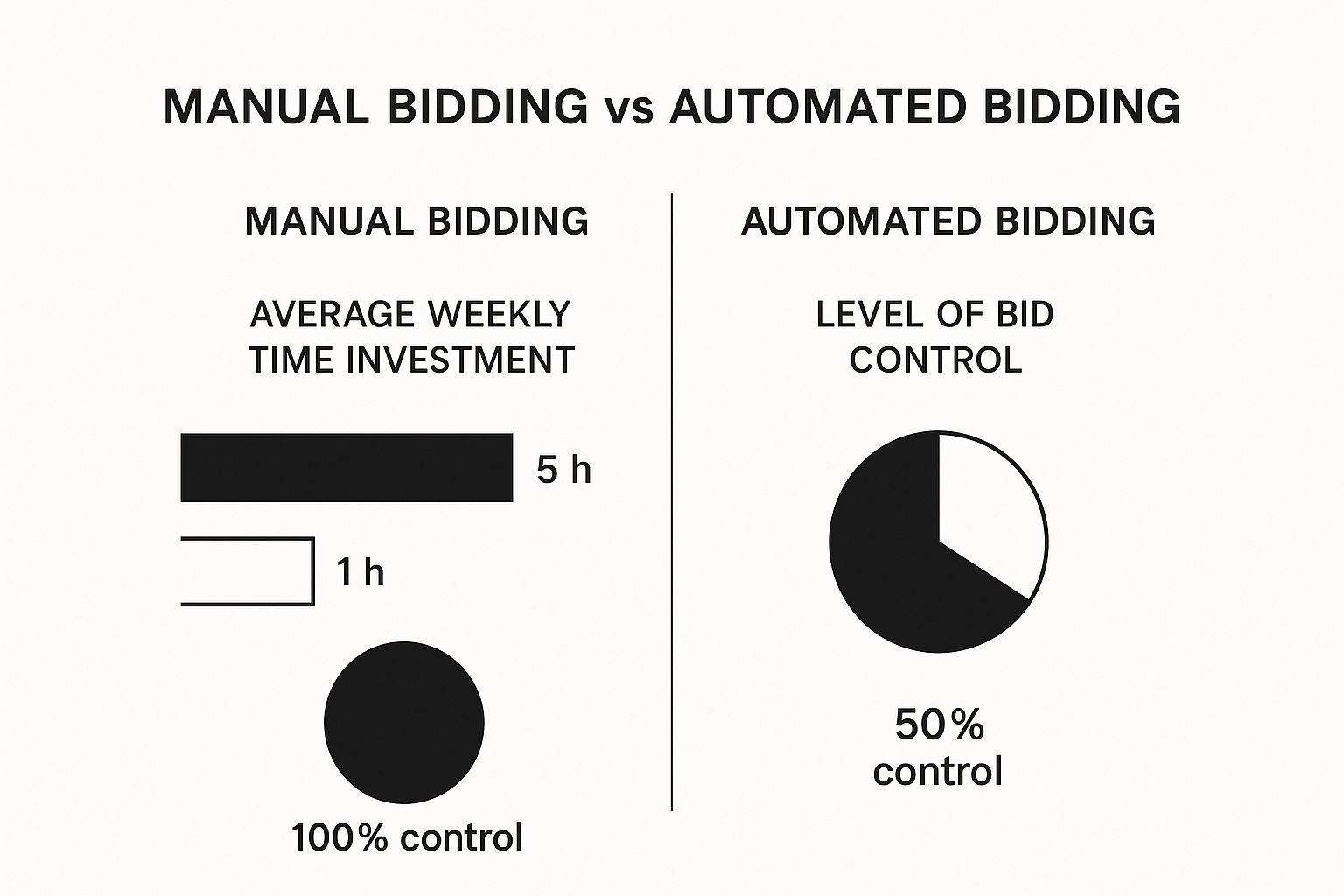
As you can see, while automation is a huge time-saver, that convenience comes at the cost of the granular control that is so critical for many businesses, especially in the early stages.
The industry has definitely jumped on the automation bandwagon. By the early 2020s, automated bidding was already influencing over 80% of all ad accounts. That’s a testament to its power when it's managed correctly. But it also means that with billions of bid decisions being made by machines every day, having a dedicated expert to oversee the system is more critical than ever.
Manual Bidding vs Automated Bidding At a Glance
To make this even clearer, let's break down the core differences in a simple table. Think of this as your quick-reference guide for deciding which driving style fits your current needs.
Aspect | Manual Bidding (The Expert Driver) | Automated Bidding (The Smart Autopilot) |
|---|---|---|
Control Level | Maximum. You set every bid for every keyword or ad group. | Minimal. You set a high-level goal, and Google's AI adjusts bids automatically. |
Time Investment | High. Requires constant monitoring, analysis, and adjustments. | Low. Frees up your time to focus on strategy, creative, and analysis. |
Best For | New campaigns, small budgets, or when you need precise cost control. | Mature campaigns with significant conversion data, scaling efforts. |
Biggest Challenge | Can be incredibly time-consuming and difficult to manage at scale. | Risk of wasted spend if the AI doesn't have enough data or is poorly configured. |
Ultimately, neither approach is universally "better." The right choice depends entirely on your campaign's maturity, your budget, and your business goals. The key is having an expert who knows when to keep your hands on the wheel and when to confidently engage the autopilot.
Choosing Your Automated Bidding Playbook

Let's be honest. Diving into Google's automated bidding options feels like trying to read a technical manual written by engineers, for engineers. It's dense, loaded with jargon, and rarely tells you what actually works in the real world.
That’s why I ignore the official descriptions. As a specialist consultant, I categorize these powerful tools by the only thing that matters: your specific business goal.
An over-priced agency will pick their "preferred" Google Ads bid strategy and slap it on every client's account because it's easy to manage. That’s not a strategy; it’s a template.
My approach is the opposite. We pick the right play from the playbook based on what winning looks like for you, not what’s convenient for me. Every single dollar has to be aligned with a clear objective.
Awareness: The Visibility Play
When your main goal is just to get your brand seen, you're playing an awareness game. We aren't hunting for immediate clicks or sales just yet. The mission is to dominate the search results page for your most important terms and build rock-solid brand recognition.
For this, Target Impression Share is your go-to. It tells Google in no uncertain terms that your top priority is showing up a certain percentage of the time. You can even get specific and tell it to aim for the absolute top of the page.
Consultant's Take: This is a beast for building authority, especially in a crowded market. But here's where most agencies mess it up: they use it without setting a maximum cost-per-click (CPC) bid. They hit the impression share goal, sure, but your CPC goes through the roof. You're left with a burned budget and nothing to show for it. As your dedicated expert, I always cap the CPC to keep costs in check.
Consideration: Driving Relevant Traffic
Once people know you exist, the next move is getting them to your website. This is the "consideration" phase. Your focus pivots from pure visibility to generating qualified traffic.
The most common strategy here is Maximize Clicks. Its job is simple: get as many clicks as possible within your daily budget. Sounds great, right?
Consultant's Take: This is, without a doubt, the strategy I see misused most often by big, impersonal agencies. Why? It’s incredibly easy to make a report look good. They can flash a chart with a massive number of clicks and call it a win.
But here’s the hidden trap: "more clicks" rarely means "better clicks." Maximize Clicks will chase the cheapest, lowest-quality traffic it can find—traffic that has zero chance of ever converting. You get a flood of visitors, but sales stay flat. As a specialist, I only use this in very specific scenarios, like driving volume to a blog post, and always with a strict CPC limit.
Conversions: The Path to Profitability
This is where the real money is made. Conversion-focused strategies are all about getting you more leads, sales, or whatever action you deem valuable. This is where Google's AI—what they call "Smart Bidding"—truly shines, but only if you set it up with expert precision.
For a deeper dive into all the options, check out our guide on the 9 Google Ads bidding strategies you need to know for 2025.
Here are the heavy hitters in the conversion playbook:
Maximize Conversions: This tells Google's algorithm to get you the most conversions possible for your budget. It’s a fantastic starting point for automation once you have some solid conversion history.
Target CPA (tCPA): This gets more granular. You tell Google the maximum you’re willing to pay for one conversion (your Cost Per Action), and the algorithm goes to work to hit that exact number.
Target ROAS (tROAS): For e-commerce businesses, this is the gold standard. You set a target Return On Ad Spend—for every $1 you spend, you want $5 back in revenue, for example—and Google optimizes your bids to hit that profitability goal.
Here’s what separates an expert from a rookie: knowing that these strategies are only as good as the data you feed them. A lazy agency might flip on tROAS for an account that only had five sales last month. That's like asking a supercomputer to predict the future based on a single sentence. The result is always wasted ad spend. I make sure your account has enough quality data before ever letting the algorithm take the wheel.
How to Pick the Right Google Ads Bid Strategy for Your Business
Choosing a Google Ads bid strategy isn't some academic exercise. It’s a real-world business decision that hits your bottom line, hard. I see it all the time: bloated agencies have a rigid playbook, and they almost always default to something complex like Target ROAS because it sounds impressive on a sales call.
The problem? They skip the most important step—making sure your business is actually ready for it. They lack the individual specialization to care.
As a consultant, I don't start with an agency template; I start with your reality. I don't just ask what your goal is. I dig in to see if your campaign has the right ingredients to even get there. This goal-first, data-second approach is how you build a profitable campaign from day one, instead of cleaning up an agency's mess six months down the road.
A No-Nonsense Framework for Choosing a Strategy
To get this right, you need to answer three foundational questions. Answering them honestly is the fastest way to a strategy that actually works for you.
What’s your real business objective? Are you trying to get the phone to ring for a service business, or are you driving e-commerce sales? Your answer immediately cuts the options in half.
How old is your campaign? A brand-new campaign needs a totally different touch than one that’s been chugging along for two years. New campaigns are all about learning and controlling costs, period.
How much conversion data do you *actually* have? This is the million-dollar question. Fancy automated strategies like Target CPA need a steady diet of conversion data to work. Without it, you're just feeding the machine garbage and hoping for gold.
The single biggest mistake is picking a bid strategy based on where you want to be, not where you are. An expert consultant walks you through a logical progression, making sure every step is built on a solid foundation of performance data.
Let’s See It in Action
So, how does this play out in the real world? Let's walk through two common scenarios. This is exactly how I’d guide a client—focusing on the right tool for the job at hand.
Example 1: The New Local Service Business Imagine a local plumber firing up their very first campaign. The goal is simple: generate leads. But the campaign is brand new, with zero conversion history. Jumping straight to an automated strategy here would be lighting money on fire. We’d start with Manual CPC. It gives us tight control over costs, helps us learn which keywords actually make the phone ring, and lets us gather that critical initial data.
Example 2: The Established E-commerce Store Now, think of an online store that’s been running ads for a year. They’re getting over 50 sales a month and tracking the value of every single purchase. This business is primed for automation. We can roll out Target ROAS with confidence because the algorithm has a rich history of sales data to chew on. It knows what a good customer looks like and can bid aggressively to find more of them.
Understanding the history of your keywords is also a huge piece of the puzzle. Google Ads gives you historical bid metrics that show you trends in competition and cost. For instance, a keyword with massive search volume but "high" competition will have a much steeper price tag—that’s vital info when you're setting your first manual bids or CPA targets. You can learn more about how to interpret these historical metrics from Google's own documentation.
This data-first approach is the perfect antidote to the generic agency playbook.
Using Data to Steer and Refine Your Bidding

Here's a hard truth most agencies won't tell you: a Google Ads bid strategy is never a "set and forget" affair. That’s an amateur move, often perpetuated by passive, bloated agencies that let the algorithm run wild. Real, sustainable growth comes from the constant, iterative adjustments you make along the way.
This is where a dedicated consultant makes all the difference. Instead of just launching a campaign and sending you a generic monthly report, I’m in the trenches, actively steering and refining your bidding based on what the real-time data is telling us. We act like data-driven detectives, constantly asking the right questions.
Diagnosing Underperformance Like an Expert
Let's say your Target CPA campaign is sputtering. A lazy agency might just shrug and say, "the algorithm is learning." As your specialist, I see it as a puzzle to be solved, and the first step is to diagnose the root cause with precision.
Is the problem actually the bid strategy, or is it just a symptom of a deeper issue?
A weak landing page? If your conversion rates are in the gutter, no amount of bidding magic can save the campaign.
Poor ad copy? Are your ads attracting window shoppers who click but never convert?
A flawed bid target? Is your CPA goal so unrealistic that it's choking the campaign before it even has a chance to breathe?
This agile, analytical approach is the polar opposite of the hands-off account management you see at large, impersonal agencies. We don't just look at the numbers; we interpret what they're trying to tell us.
Using Simulators to Predict the Future
One of the most powerful tools in our arsenal is the bid simulator. Think of it as a time machine for your ad account. This tool lets us look back at the past week and run "what-if" scenarios, showing us exactly how changing your bid would have impacted key metrics like cost, clicks, and conversions.
An agency sees data as a way to justify their invoice. A consultant sees data as a compass. We use it to navigate, adjust course, and ensure we're always moving toward your primary goal: profitability.
Of course, any good diagnosis requires flawless data. If a campaign is struggling, the very first thing we do is make sure you fix your Google Ads conversion tracking. Garbage in, garbage out.
And it goes beyond just tracking conversions. We also need to understand the quality of the leads you're generating. By implementing more sophisticated systems like AI Lead Scoring playbooks, we can focus your ad spend on the audiences that are most likely to turn into high-value customers.
Let's get real about the choice you have when you need help with your Google Ads bid strategy.
You can go with a big, over-priced agency. Most of the time, they'll hand your account over to a junior manager working from a standardized playbook. Your business ends up being one of dozens they’re juggling, which almost always leads to cookie-cutter strategies and painfully slow communication.
It's a numbers game for them. The goal is to plug you into a template that's efficient for the agency, not necessarily what’s most profitable for you. This is exactly why so many businesses feel like they're just spinning their wheels—lots of activity, but no real results to show for it.
A dedicated consultant, on the other hand, operates as a true strategic partner. Instead of a junior employee, you're getting senior-level expertise that’s 100% focused on your specific business goals. My job is to build a completely custom strategy that’s nimble enough to adapt to your performance data in real time, not just at the end of a long reporting cycle.
The real difference comes down to investment. With an agency, you're a row on a spreadsheet, getting a pre-packaged solution. With a consultant, you're investing in a partner who is personally committed to squeezing every last drop of value out of your ad spend.
This means we pivot fast, test everything, and are in constant communication. My success is tied directly to yours, which means I treat your budget like it’s my own money on the line.
Your campaigns get the specialized, hands-on attention they need to actually grow. We move past the generic agency playbook to get you tangible, profitable results. That's the consultant advantage.
Your Top Bidding Questions, Answered
Let's cut through the jargon. When you're managing Google Ads, a few key questions about bidding always come up. Forget the textbook answers—here’s what you need to know based on years of in-the-trenches experience.
How Long Is the Google Ads Learning Period?
When you launch a new Google Ads bid strategy or make a significant change, expect Google's Smart Bidding to enter a "learning period." This typically lasts about 5-7 days.
Performance can be all over the place during this window. The algorithm is figuring things out, so my best advice is simple: don't touch it. Resist the temptation to make more changes. For strategies that need a lot of data, like tCPA or tROAS, you might need to give it a full two or three weeks to really find its groove and stabilize.
What Is the Best Bid Strategy for a Small Budget?
If you're working with a smaller budget, your best bet is to start with Manual CPC or Enhanced CPC. Why? Control. These strategies let you put a hard cap on what you’re willing to pay for a single click, which is crucial for preventing a few expensive clicks from blowing your entire daily budget.
This hands-on approach is perfect for gathering that initial performance data without taking on too much risk. Once your campaign is reliably bringing in at least 15-20 conversions a month, you'll have enough data to confidently test an automated strategy like Maximize Conversions and start scaling up.
How Often Should I Change My Bid Strategy?
Almost never. Seriously. One of the biggest mistakes I see is businesses switching strategies too frequently, usually as a knee-jerk reaction to a few bad days. Think of your bid strategy as a long-term investment that needs time to mature.
Constantly changing your bid strategy is a recipe for disaster. Every time you switch, you reset the learning period, and the algorithm never gets a chance to build momentum. Patience wins this game.
The only time you should consider a switch is if your core business goal has fundamentally changed (like shifting from lead gen to brand awareness) or if a strategy is consistently missing its targets long after the learning period is over.
It's almost always better to tweak the inputs—adjust your tCPA target, refine your keywords, or improve your ad copy and landing pages. This is the focused, methodical work a dedicated consultant does, a world away from the chaotic "strategy-of-the-month" you get from a bloated agency.
Ready to stop guessing and start getting real results from your Google Ads? As your dedicated consultant, Come Together Media LLC will build a custom strategy that aligns with your specific business goals, not an agency's template. Schedule your free, no-obligation consultation today.




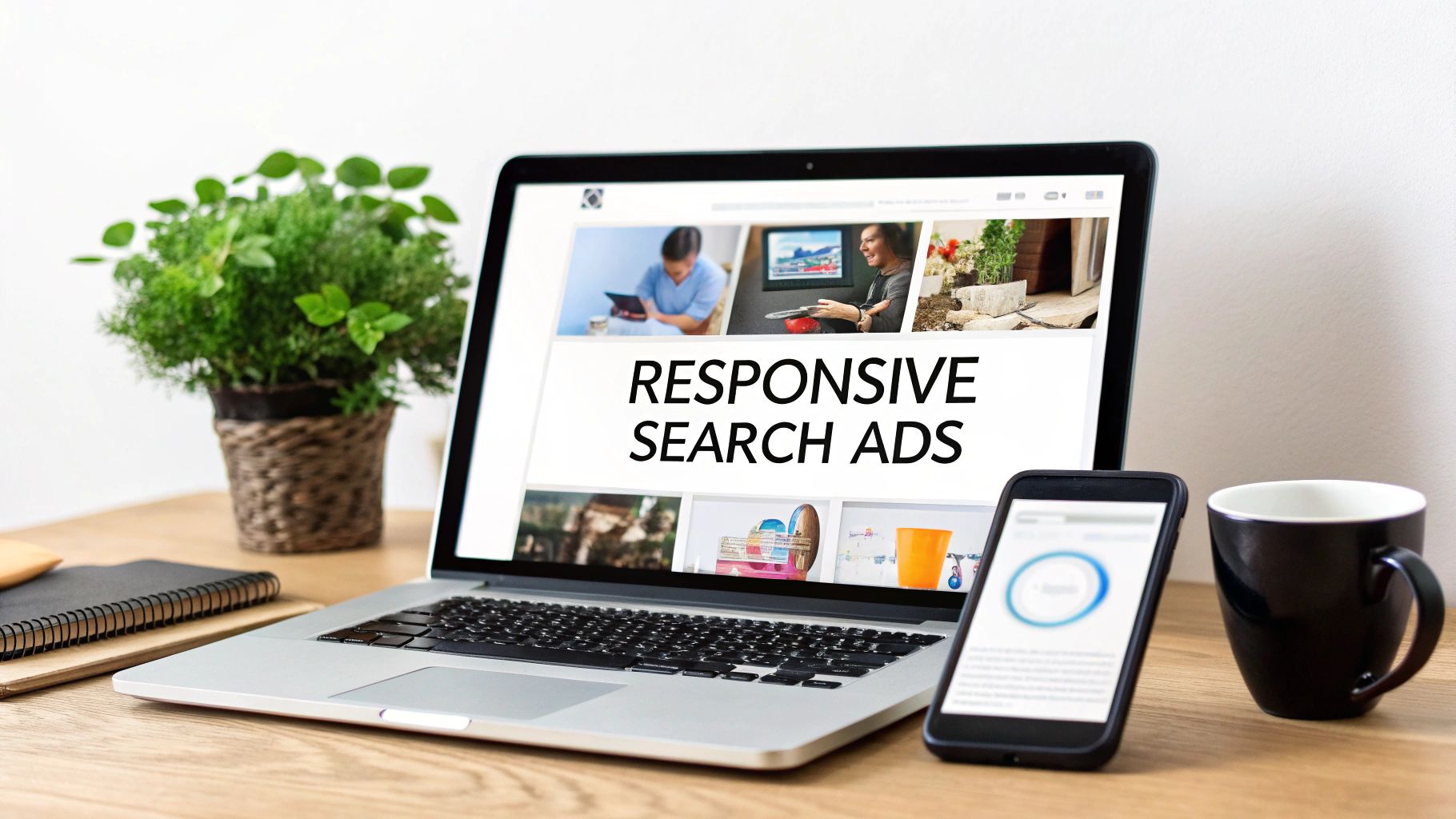
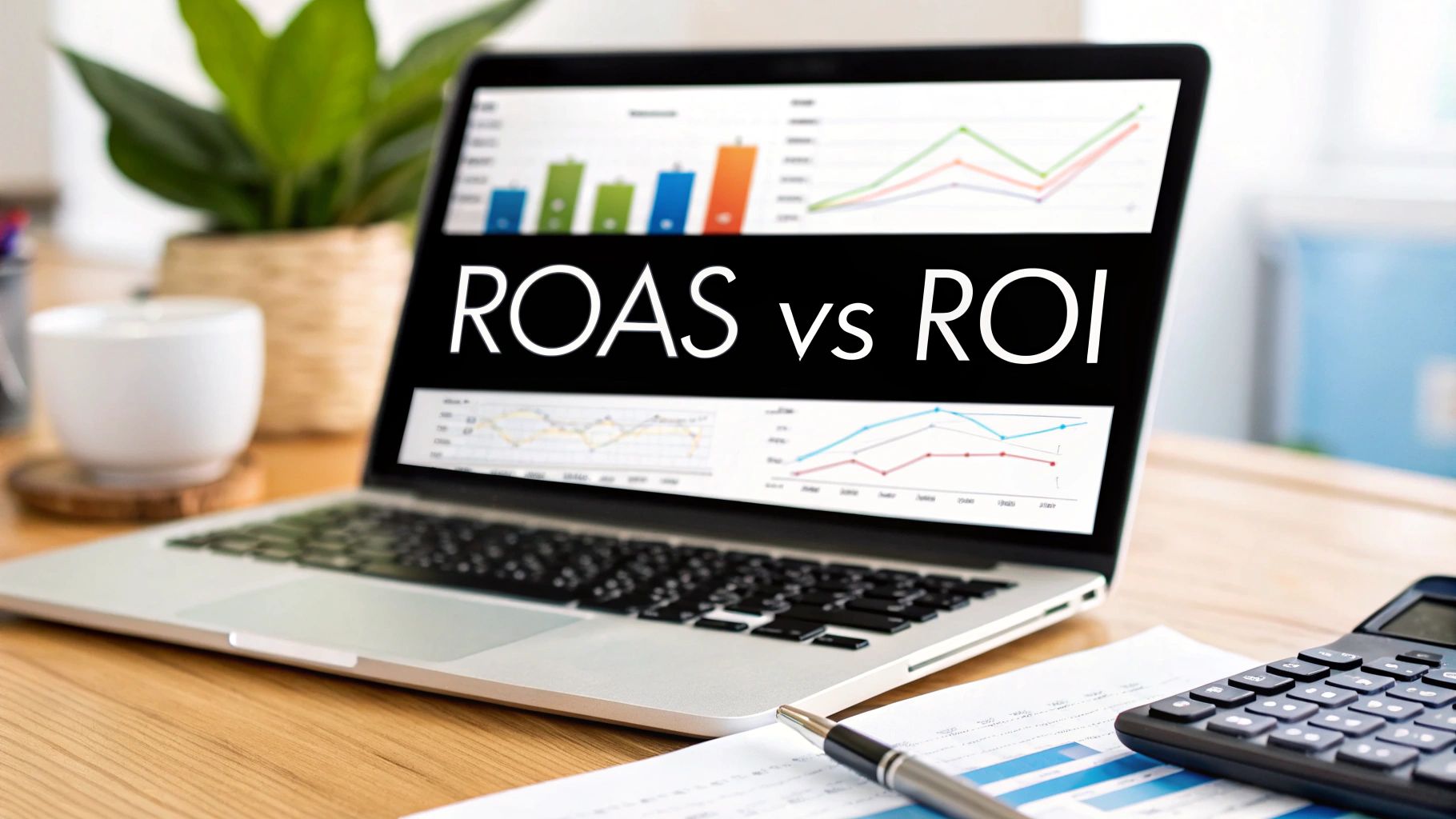
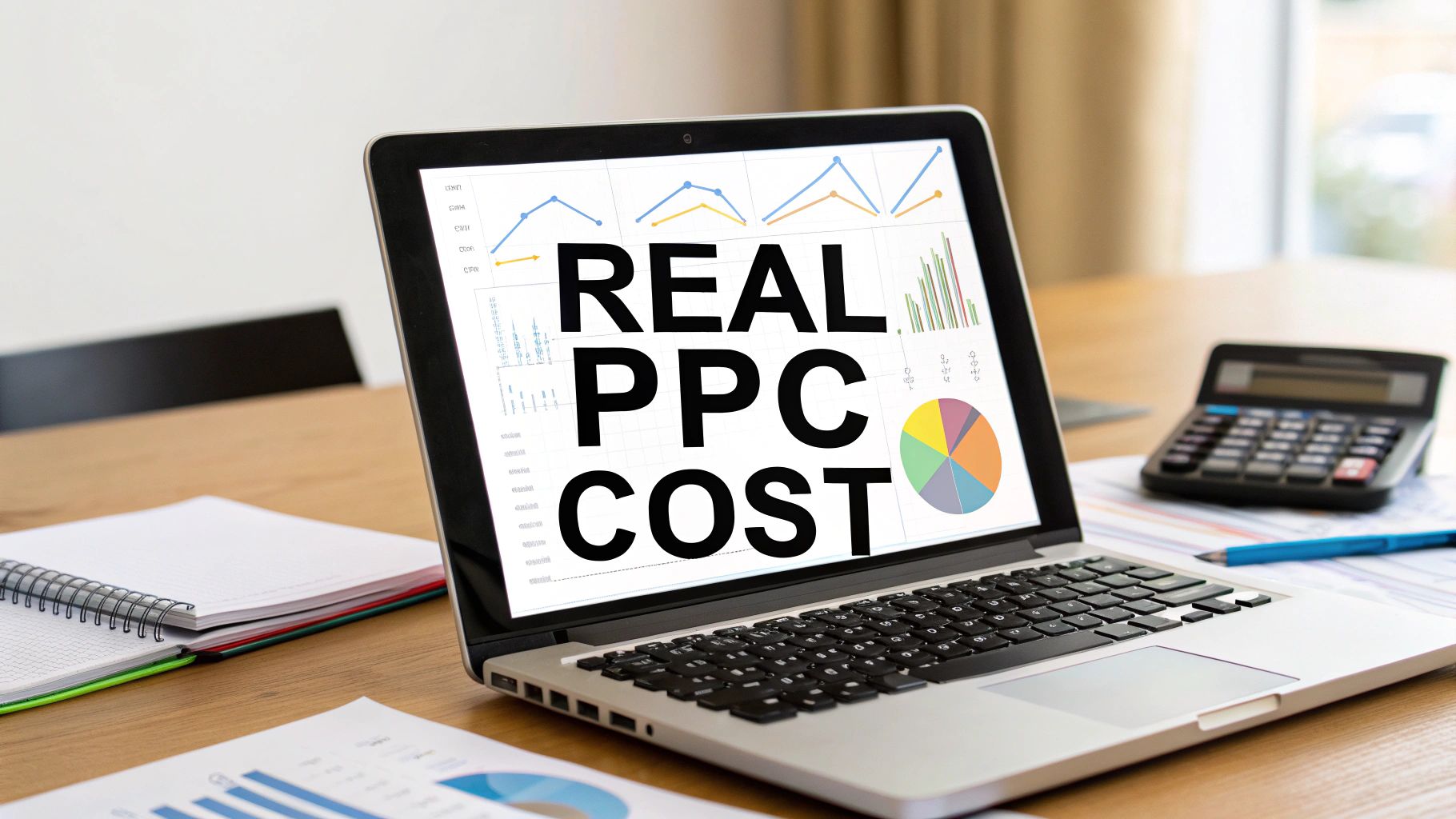
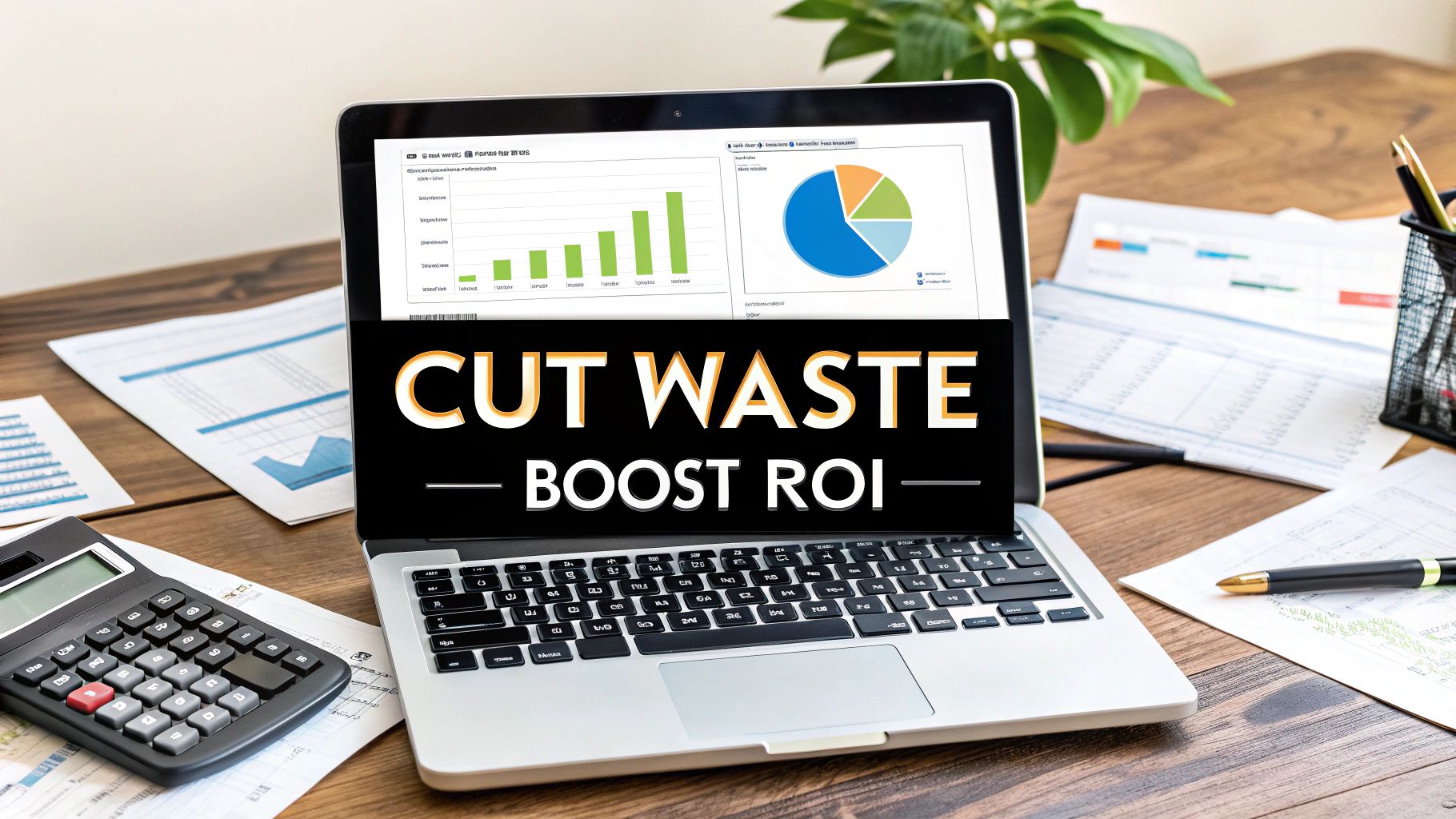
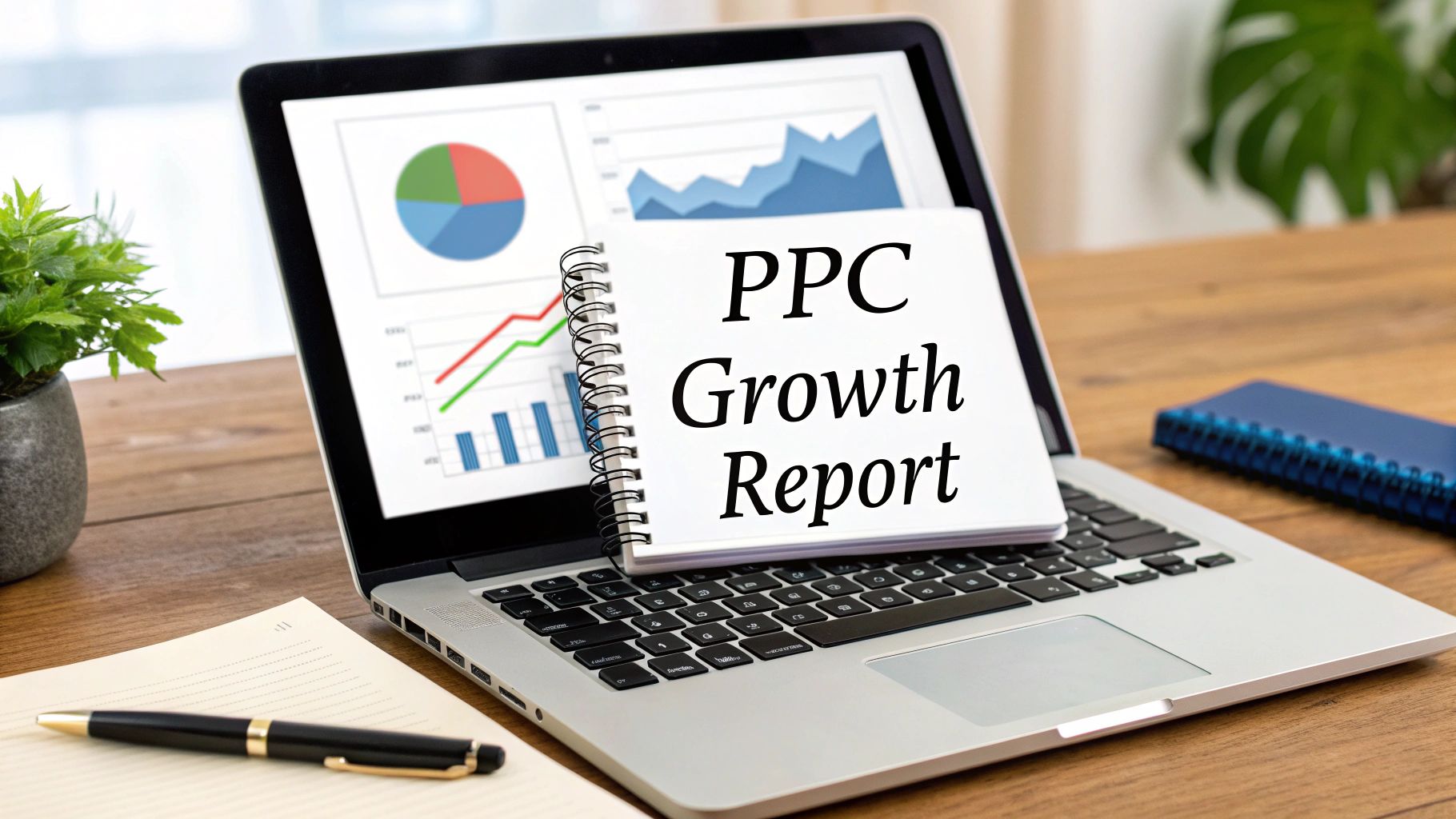
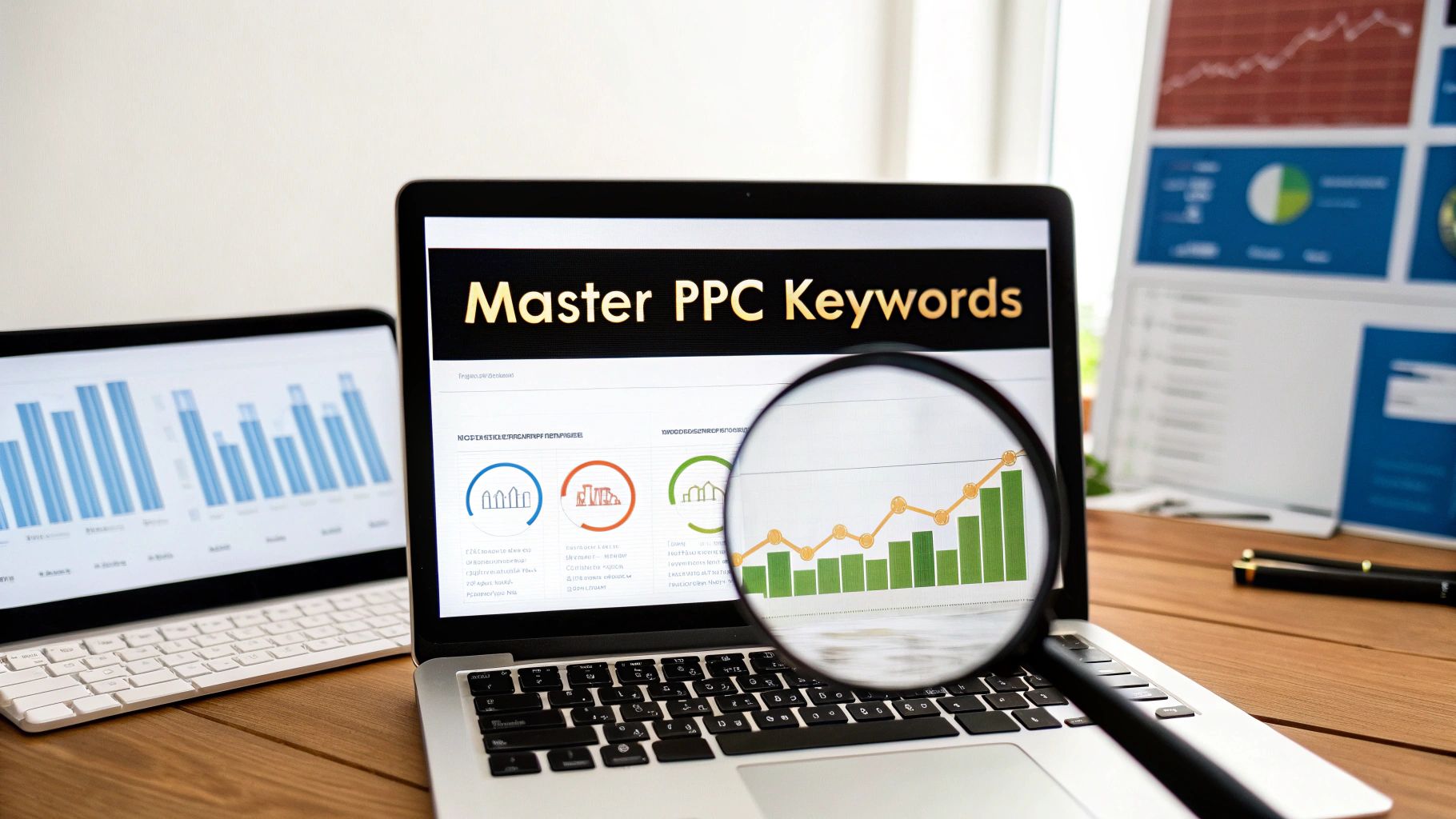
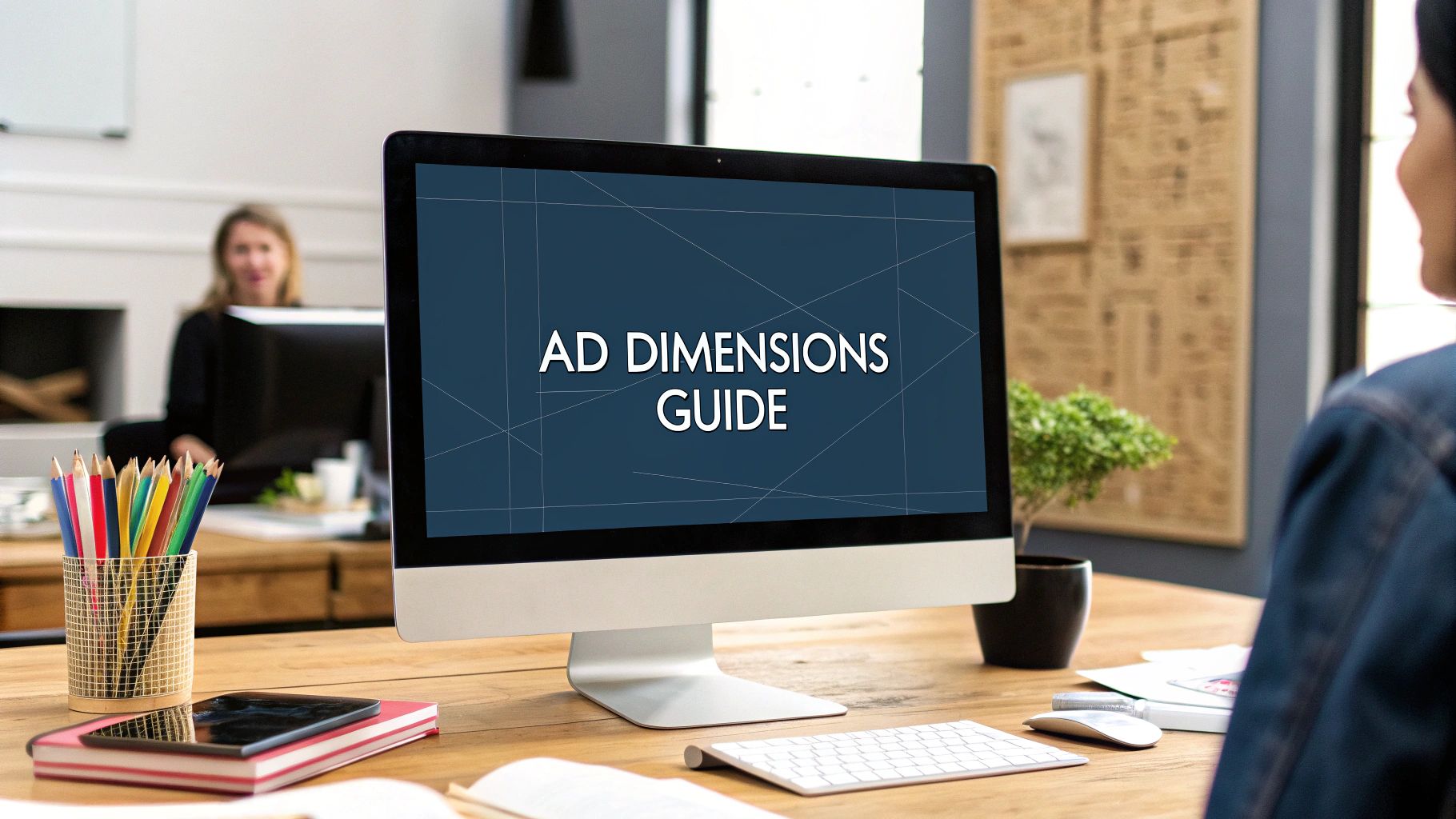
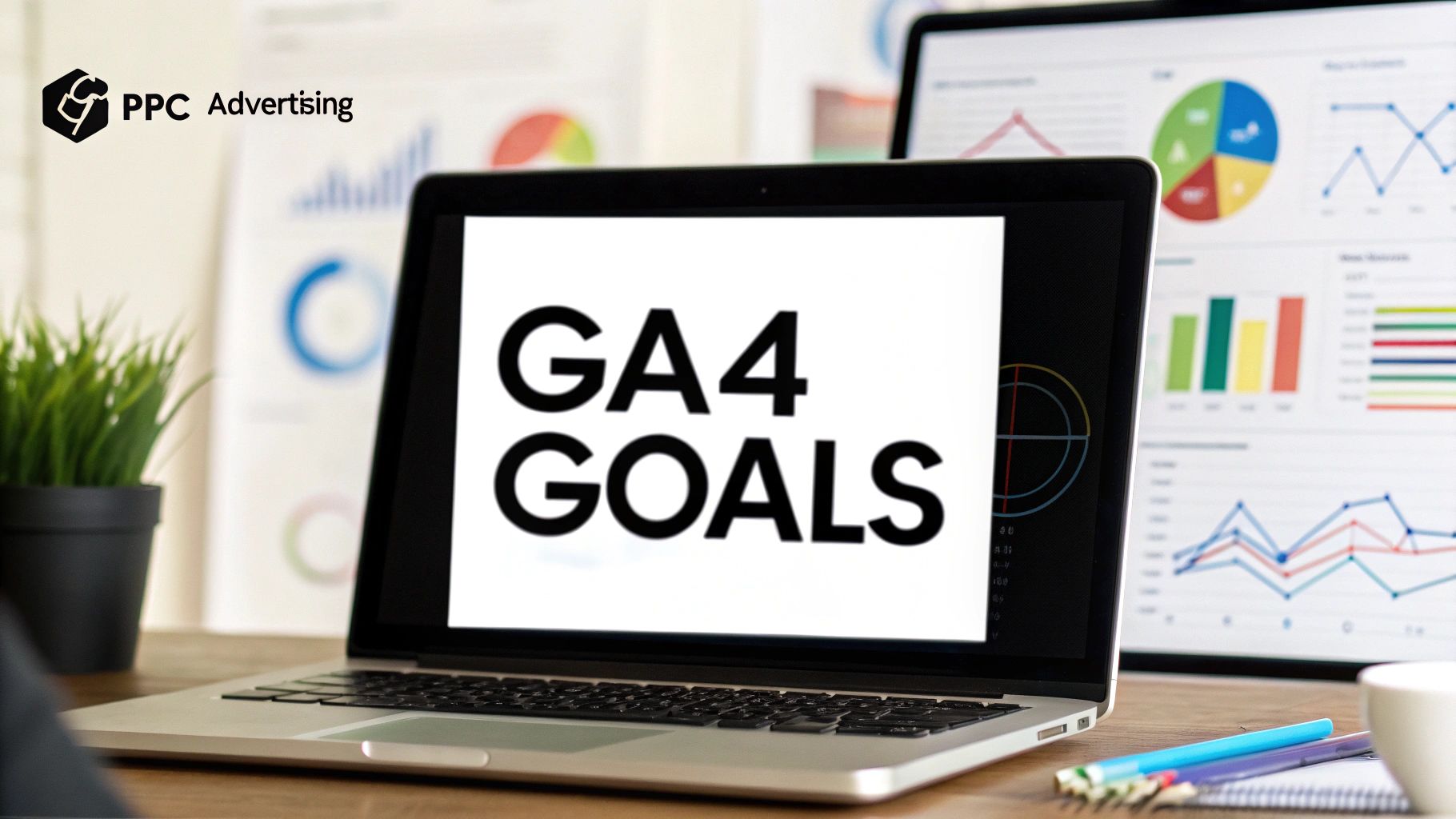
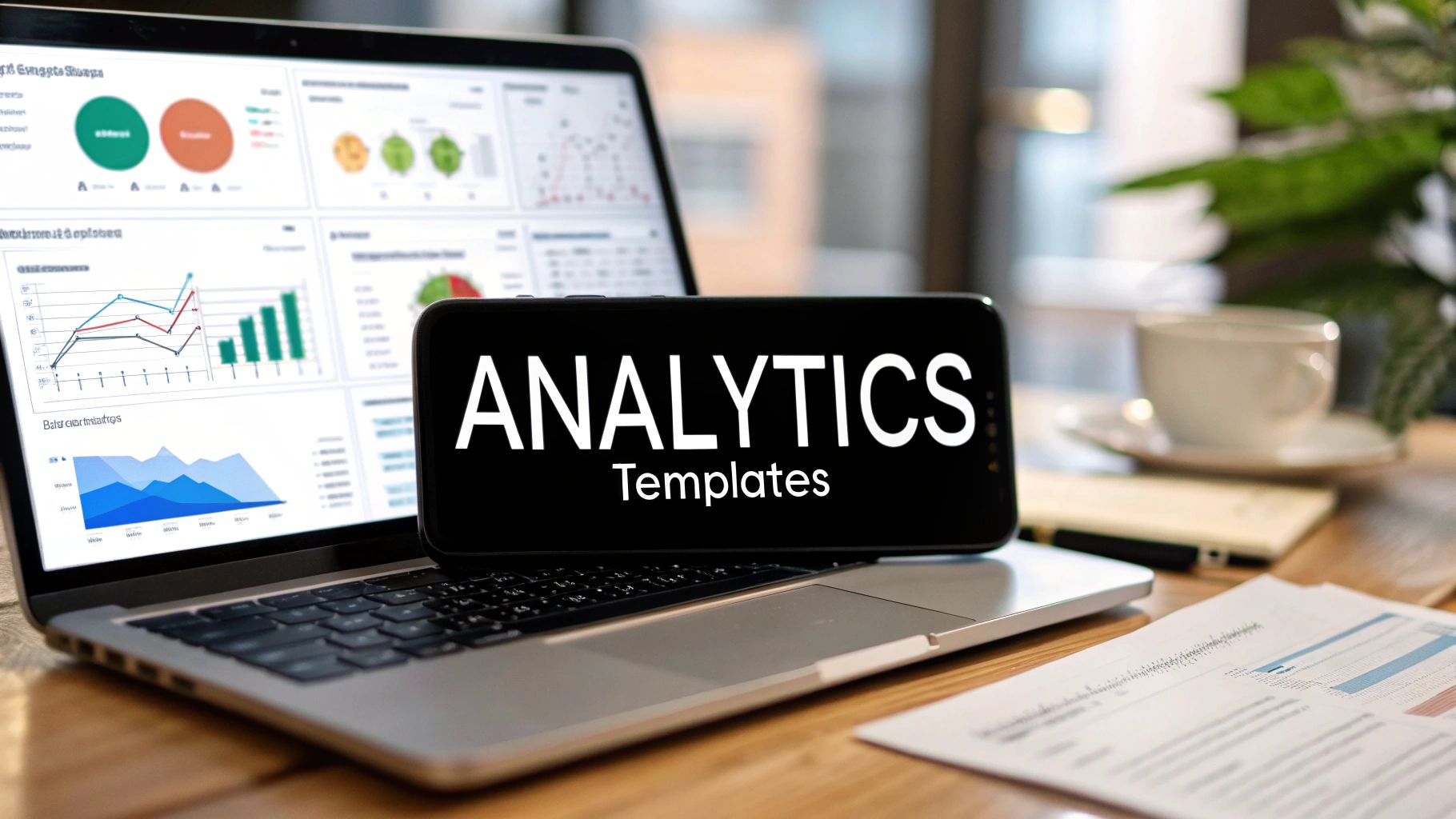
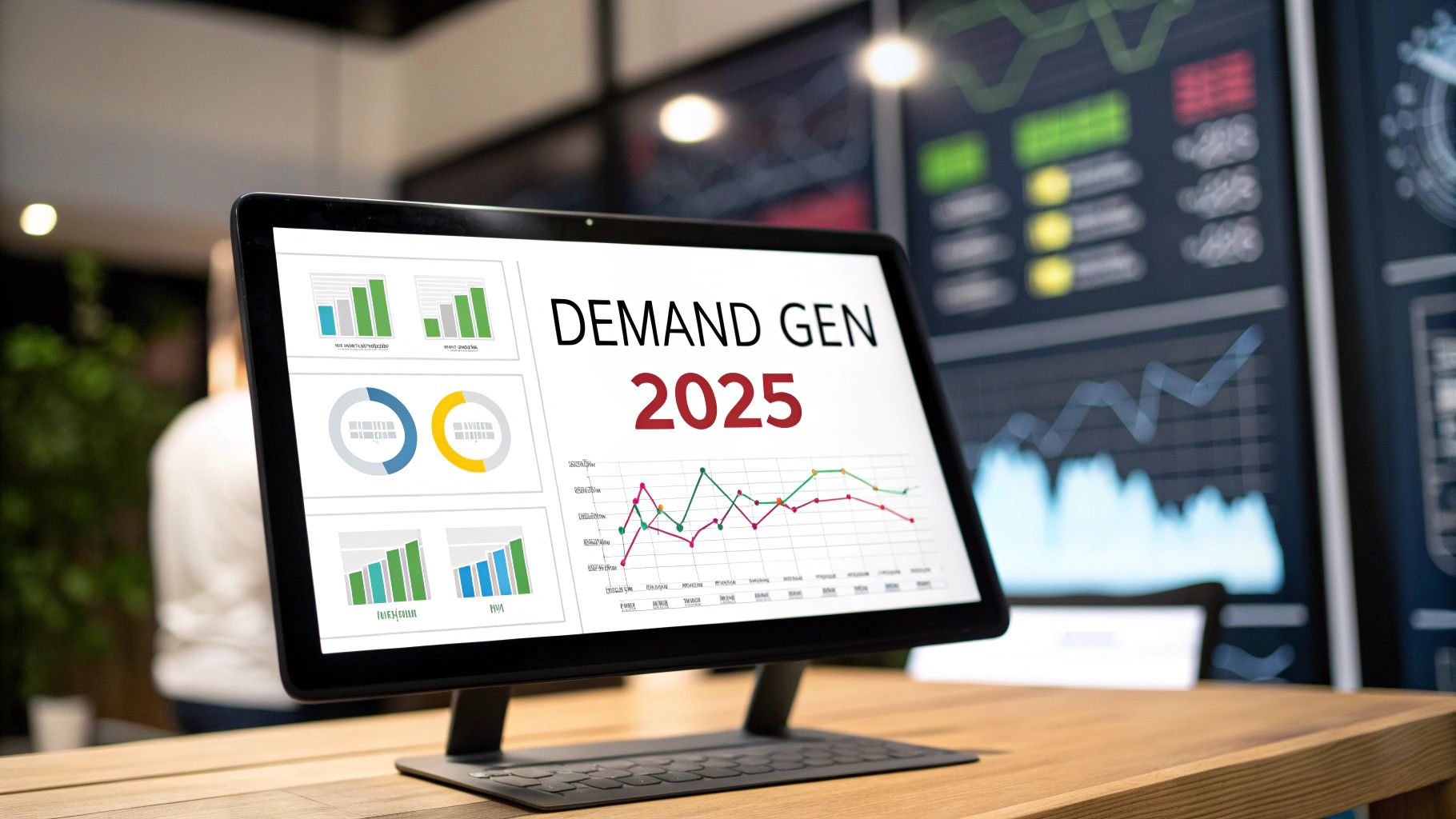
Comments